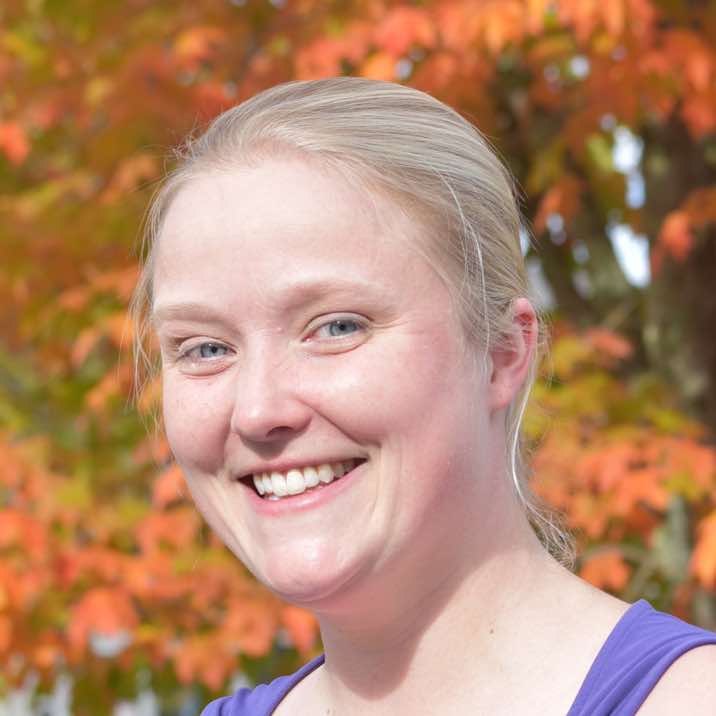University of Maine, Orono, ME; 9/2008 – 8/2010
Research Associate/Postdoctoral Research Associate, School of Marine Sciences; Advisor: Dr. Sara Lindsay
Georgia Institute of Technology (GATech), Atlanta, GA; 8/2003-4/2009
Ph.D., Biology (Integrative degree with Chemistry and Fluid Physics); Advisor: Dr. Marc Weissburg
Dissertation topic: Effects of bed roughness on scalar mixing and odor plume navigation of Callinectes sapidus in turbulent
boundary layer flows
University of Maine, Orono, ME; 9/2000-5/2003
B.S., Marine Science w/Marine Biology concentration; Advisor: Dr. Sara Lindsay
Graduated Summa Cum Laude and with Highest Honors
Honors Thesis topic: A comparison of anterior regeneration in Dipolydora quadrilobata and Pygospio elegans
With her diverse background in education spanning traditional academia, K-12 education, teacher professional development, and out-of-school, place-based learning, Dr. Jenn Page enjoys facilitating transformational learning opportunities that affirm people’s individual strengths and their personal experiences. The core of her work revolves around supporting educators to design and facilitate place-based education for students, whether that is working with the Hurricane Island Center for Science and Leadership staff or with classroom teachers on opportunities they will implement in their own schools. Jenn’s favorite thing about Hurricane Island is consistently the people she works with.
Before joining Hurricane Island, Jenn taught for two years in the School of Marine Sciences at the University of Maine as a post-doc followed by 5 years as a science instructor at Bangor High School in Maine. While at Bangor High, Jenn was a passionate Speech & Debate coach and helped develop the school’s rigorous STEM Academy.
Jenn holds a BS in Marine Science from the University of Maine and a PhD in Biology from the Georgia Institute of Technology where she studied the chemosensory tracking behavior of blue crabs. In addition to her work with Antioch and Hurricane Island she currently serves as a member of the Maine Environmental Education Association’s Board and on the University of Maine Honors College’s Board of Advisors. She is the High School Module Coach for the Maine Department of Education’s MOOSE project and a 2018 ee360 Community Fellow with the North American Association of Environmental Education (NAAEE).
When she is relaxing Jenn spends as much time at home as possible with her husband and their cat, Loki. She is an avid Bullet Journalist and planner and enjoys listening to podcasts while walking around her neighborhood.
Aquatic chemical ecology
Place-based teaching and learning
Standards integration in project based learning
UN Sustainable Development Goals in curriculum
Smith, MK, ES Toth, K Borges, F Dastoor, J Johnson, E Jones, P Nelson, J Page, K Pelletreau, N Prentiss, J Roe, J Staples, M Summers, E Trenckmann, E Vinson. Using place-based economically relevant organisms to improve student understanding of the roles of carbon dioxide, sunlight, and nutrients in photosynthetic organisms. Accepted for publication with revisions in CourseSource.
Zoellick, B, JL Page. 2017. Will the adoption of science standards push Maine schools away from authentic science? Maine Policy Review. 26 (2), 59-63.
Page, JL, MJ Weissburg, BD Dickman, DR Webster. 2011. Getting ahead: context-dependent responses to odorant filaments drive along-stream progress during odor tracking in blue crabs. Journal of Experimental Biology. 214 (9), 1498-1512.
Page, JL, MJ Weissburg, BD Dickman, DR Webster. 2011. Staying the course: chemical signal spatial properties and concentration mediate cross-stream motion in turbulent odor plumes. Journal of Experimental Biology. 214 (9), 1513-1522.
Dickman, BD, JL Page, DR Webster, MJ Weissburg. 2009. Three-dimensional odorant quantification around actively tracking blue crabs. Limnology and Oceanography Methods. 7: 96-108.
Lindsay, SM, JL Jackson, DL Forest. 2008. Morphology of anterior regeneration in two spionid polychaete species: implications for feeding efficiency. Invertebrate Biology. 127: 65-79.
Jackson, JL, MJ Weissburg, S Rahman, DR Webster. 2007. Bed roughness effects on boundary layer turbulence and consequences for odor tracking behavior of blue crabs (Callinectes sapidus). Limnology and Oceanography. 52: 1883-1897.
Lindsay, SM, JL Jackson, and SQ He. 2007. Anterior regeneration in the spionid polychaetes Dipolydora quadrilobata and Pygospio elegans. Marine Biology 150: 1161-1172.
Place-Based Teaching and Learning
Place-Based Sustainability Education
Sustainable Leadership Independent Study

